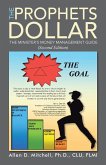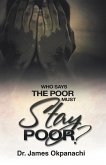There are a lot of books about leadership. Most of them offer decent advice. Why another one? This is the second volume of Notes from the Corporate Underground. It's a collection of essays about the realities of leadership, not the theoretical. There are no simple models offered here and no easy answers. Just real life. After reading this volume, you might decide not to pursue a path of leadership, and you would be wise to do so if what you find here causes you to pause in your pursuit of advancement. Leadership is about selflessness, when it's done right. But if you do get it right, then you could work for a jerk and truly enjoy it, because that jerk would be you.
Hinweis: Dieser Artikel kann nur an eine deutsche Lieferadresse ausgeliefert werden.
Hinweis: Dieser Artikel kann nur an eine deutsche Lieferadresse ausgeliefert werden.








